-
About
- About Listly
- Community & Support
- Howto
- Chrome Extension
- Bookmarklet
- WordPress Plugin
- Listly Premium
- Privacy
- Terms
- DMCA Copyright
- © 2010-2025 Boomy Labs


Listly by Adam Z. Reynolds
A random smattering of papers, lectures, blog posts, and other things related to ecology, social science, and quant/comp methods.
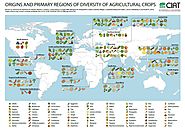
Explore the geographic origins of our food crops – where they were initially domesticated and evolved over time – and discover how important these “primary regions of diversity” are to our current diets and agricultural production areas.
Read more about the study →
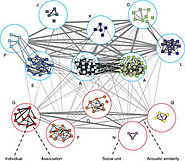
Multilevel societies, containing hierarchically nested social levels, are remarkable social structures whose origins are unclear. The social relationships of sperm whales are organized in a multilevel society with an upper level composed of clans of individuals communicating using similar patterns of clicks (codas). Using agent-based models informed by an 18-year empirical study, we show that clans are unlikely products of stochastic processes (genetic or cultural drift) but likely originate from cultural transmission via biased social learning of codas. Distinct clusters of individuals with similar acoustic repertoires, mirroring the empirical clans, emerge when whales learn preferentially the most common codas (conformism) from behaviourally similar individuals (homophily). Cultural transmission seems key in the partitioning of sperm whales into sympatric clans. These findings suggest that processes similar to those that generate complex human cultures could not only be at play in non-human societies but also create multilevel social structures in the wild.
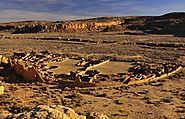
How did climate change affect the boom-and-bust cycles of of ancient Southwest civilizations in the United States? Listen to Kyle Bocinsky on Science Friday, discussing his new paper on how climate fluctuations can drive social and political change.
I examine the impact of expanding international trade and migration on prospects for global sustainability from a strictly biophysical/ecological/behavioral perspective. My starting premise is that techno-industrial society is inherently unsustainable. Humans have a natural propensity to expand to occupy all accessible habitats and use all available resources. Because of continuous growth propelled by improving technology, the modern human enterprise is already in a state of ecological overshoot. Globalization and trade exacerbate the situation by shuffling resources around and short-circuiting the negative feedback that would otherwise result from local resource degradation. This allows population and material growth within each individual trading region to exceed local biophysical limits. This, in turn, accelerates the depletion of natural capital everywhere and ensures that all now trade-dependent regions hit global limits simultaneously. Large-scale migration also worsens matters by reducing negative feedback and enabling increased resource consumption. Moreover, because resource scarcity is likely to precipitate conflict among self-identifying ‘tribal’ groups within multi-cultural societies, uncontrolled migration may create conditions that impede the implementation of policy measures required for ecological sustainability. Global sustainability is thus most likely to be achieved through policies that foster increased regional self-reliance, encourage greater investment in local natural capital, and favor the development of strong, diverse local economies ‘in place.’ Such measures will raise local (and therefore global) bio-capacities and reduce both the pull and push factors in international migration.
Cultural evolutionary theory provides a useful framework for studying social-ecological change and for designing policy to achieve sustainability in social-ecological systems. There are a number of reasons why this is so. Current social-ecological systems theory—or ‘sustainability theory’—does not consider or include endogenous cultural dynamics (Caldas et al., 2015). Instead, it is largely based on our understanding of ecological systems and ecological change, disregarding what we know about cultural dynamics from the outset. This is a big gap, because we now know a great deal about the complex internal dynamics of human culture.
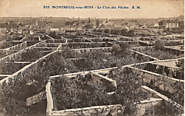
From the sixteenth to the twentieth century, urban farmers grew Mediterranean fruits and vegetables as far north as England and the Netherlands, using only renewable energy.
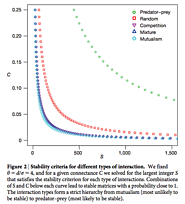
When it comes to explaining species diversity, Stefano Allesina differs from the traditional approach. Community ecology has long focused on the role of two species interactions in determining coexistence (Lotka-Volterra models, etc), particularly in theory. The question then is whether two species interactions are representative of the interactions that are maintaining the millions of species in the world, and Allesina strongly feels that they are not.
American public bureaucracy is not designed to be effective. The bureaucracy arises out of politics, and its design reflects the interests, strategies, and compromises of those who exercise political power.

We present three major transitions that occur on the way to the elaborate and diverse societies of the modern era. Our account links the worlds of social animals such as pigtail macaques and monk parakeets to examples from human history, including 18th Century London and the contemporary online phenomenon of Wikipedia. From the first awareness and use of group-level social facts to the emergence of norms and their self-assembly into normative bundles, each transition represents a new relationship between the individual and the group. At the center of this relationship is the use of coarse-grained information gained via lossy compression. The role of top-down causation in the origin of society parallels that conjectured to occur in the origin and evolution of life itself.
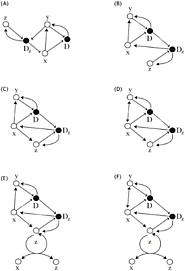
We present statistical evidence and dynamical models for the management of conflict and a division of labor (task specialization) in a primate society. Two broad intervention strategy classes are observed- a dyadic strategy - pacifying interventions, and a triadic strategy -policing interventions. These strategies, their respective degrees of specialization, and their consequences for conflict dynamics can be captured through empirically-grounded mathematical models inspired by immuno-dynamics. The spread of aggression, analogous to the proliferation of pathogens, is an epidemiological problem.

This article is the fourth in my series of articles exploring the application of complex adaptive systems (CAS) theory to legal systems. It applies the model to the specific context of environmental law.

Economics By John Komlos Is it time to update econ 101? Markets don't work the way economics textbooks say they do. While I do believe in the power of markets to cultivate social good, they have many natural limitations that any credible scientific approach must recognize for public policies to be effective.

The power of any kind of network approach lies in the ability to simplify a complex system so that one can better understand its function as a whole. Sometimes it is beneficial, however, to include more information than in a simple graph of only nodes and links. Adding information about times of interactions can make predictions and mechanistic understanding more accurate. The drawback, however, is that there are not so many methods available, partly because temporal networks is a relatively young field, partly because it more difficult to develop such methods compared to for static networks. In this colloquium, we review the methods to analyze and model temporal networks and processes taking place on them, focusing mainly on the last three years. This includes the spreading of infectious disease, opinions, rumors, in social networks; information packets in computer networks; various types of signaling in biology, and more. We also discuss future directions.

Abstract: During decades the study of networks has been divided between the efforts of social scientists and natural scientists, two groups of scholars who often do not see eye to eye. In this review I present an effort to mutually translate the work conducted by scholars from both of these academic fronts hoping to unify what has become a diverging body of literature.
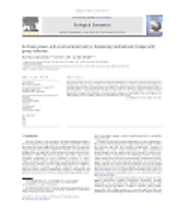
"The mechanisms of multilevel selection may apply to natural and socio-economic domains; here we are interested in understanding: the interaction between the mechanisms of 'cultural' group selection (that is, when individuals are human agents) and the exercise of power, and how this interaction affects economic change.
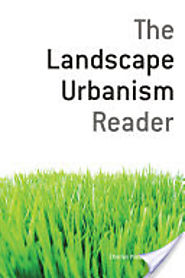
In Charles Waldheim—who is at the forefront of this new movement—has assembled the definitive collection of essays by many of the field's top practitioners. Fourteen essays written by leading figures across a range of disciplines and from around the world—including James Corner, Linda Pollak, Alan Berger, Pierre Bolanger, Julia Czerniak, and more—capture the origins, the contemporary milieu, and the aspirations of this relatively new field. The Landscape Urbanism Reader is an inspiring signal to the future of city making as well as an indispensable reference for students, teachers, architects, and urban planners.
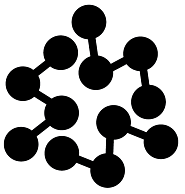
If we want people to make code available, be willing to admit mistakes, and continuously update their code then we don't just need code review. We need a policy that recognizes that most scientists are not professional software developers and focuses review on the scientific correctness/reproducibility of code, rather than technical software development skills.

If we’re going to rely on science as a means for reaching the truth — and it’s still the best tool we have — it’s important that we understand and respect just how difficult it is to get a rigorous result. I could pontificate about all the reasons why science is arduous, but instead I’m going to let you experience one of them for yourself. Welcome to the wild world of p-hacking.